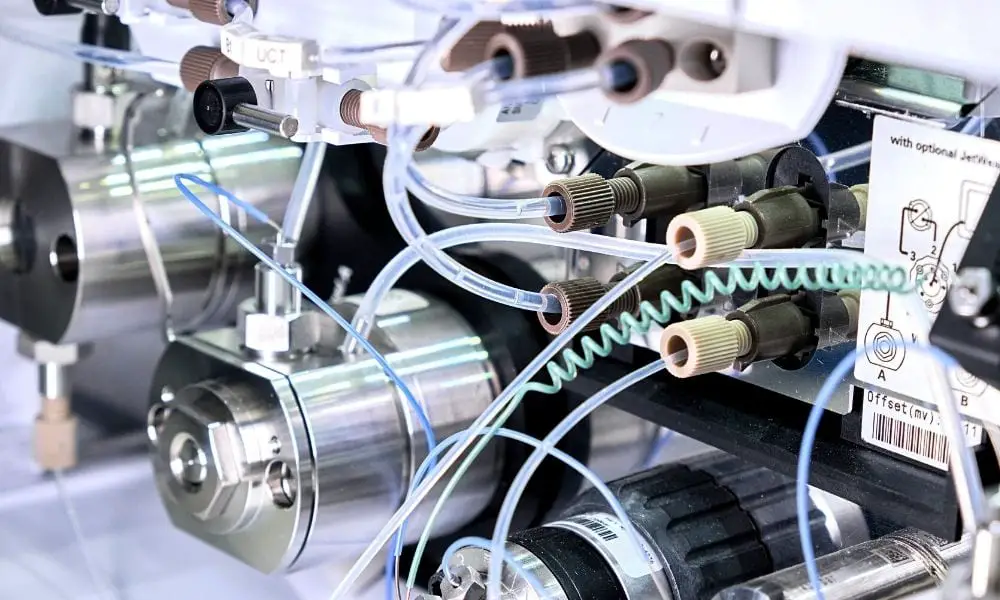

The world of science is always advancing. High-pressure liquid chromatography (HPLC) is a type of chemistry that’s used in many industries and fields of study. It’s necessary for the purification and analysis of food and drug samples. HPLC includes a stationary and mobile phase, and the process requires pumps for the mobile phase. Keep reading to find the answer to the question, “What are HPLC pumps, and how do they work?”
Also known as solvent delivery systems, HPLC pumps are used to maintain the constant flow of a solvent during the mobile phase of chromatography experiments. You’ll want to maintain a consistent pressure within your pump for accurate results. Most pumps have a dual-piston design to ensure the pump can resist backpressure.
Isocratic pumps deliver one solvent in HPLC applications. Dual-piston pumps produce a smooth flow of liquid because they contain reciprocating piston pumps. The pumps produce the same volume of fluid flow under high pressure for the duration of the process. It’s great for accurate flow pressure.
Single-piston isocratic pumps can draw liquid into their pumping chamber quickly. They work well to minimize flow pulsation and give accurate results.
Binary pumps are preferred in HPLC. These high-pressure mixing pumps contain two solvents. To ensure the solvents you desire are being used in your pump, prime your HPLC pump prior to using it.
If you’re using four or more solvents, you will use a low-pressure mixing pump. It’s known as a quaternary pump and is common in HPLC applications. You must degas solvents to use this type of pump.
Pumps are used in many different applications of HPLC. HPLC is helpful to many industries, including:
Few people know what HPLC pumps are and how they work. Share these interesting facts with your peers and amaze them with your knowledge about this advanced method of chemistry.
If you’re an international student, you might want your degree to provide you with stability…
Discover practical tips to elevate your summer barbecues with great food, fun games, and a…
Discover legit methods for how to make money playing video games. Explore esports, streaming, content…
Confused about how many steps daily are needed for good health? Forget the 10,000 myth…
Discover legitimate highest paying online surveys and learn strategies to actually earn worthwhile rewards for…
When it comes to keeping your home comfortable while minimizing energy costs, the roofing material…